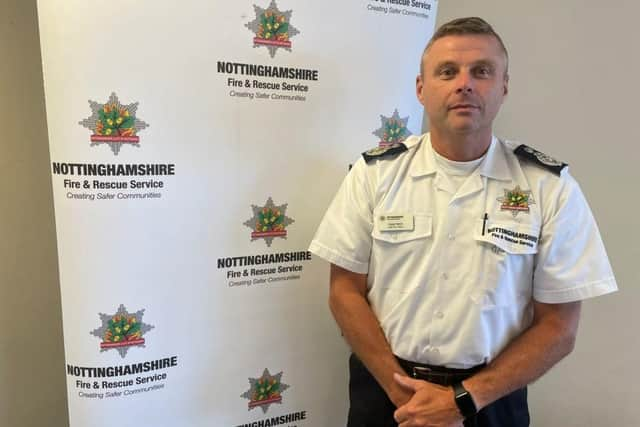Nottinghamshire firefighters ‘upskilled’ and given access to trauma kits following Manchester Arena bombing
and live on Freeview channel 276
The Manchester attack, on May 22 2017, was the deadliest terrorist attack in the UK since the 2005 July 7 bombings in London.
Suicide bomber Salman Abedi detonated an explosive device in the arena’s foyer as people left an Ariana Grande concert. Twenty-two people were killed and more than 900 injured.
Advertisement
Hide AdAdvertisement
Hide AdAn inquiry, opened in September 2020, ended in February last year, having heard evidence from hundreds of witnesses and examined the actions of authorities.


Chairman Sir John Saunders determined he could not rule out the survival of some victims if the emergency response had been better, saying significant aspects of the response “went wrong” between police, fire and ambulance services.
These included a failure to declare a major incident, fire crews taking more than two hours to attend, an overall lack of efficient communication and inadequate first aid training.
The findings and the impact on the service in Nottinghamshire was discussed during the latest county fire authority meeting.
Advertisement
Hide AdAdvertisement
Hide AdChief Fire Officer Craig Parkin, of Nottinghamshire Fire & Rescue Service, said work had been done to improve communication between services and control rooms, as well as how firefighters are able to respond to emergencies in a medical capacity.
He said: “The report made 139 recommendations, 62 of which are relevant to this organisation. We have a high standard in this organisation and it has been long-standing.
“We have some gaps about whether we should do more or not, moving into medical prescription that some might do, but, as a general rule, all our front-line firefighters are trained to a high standard in defibrillation, we have introduced trauma packs.
“We have done a bit of an upskill in terms of the care gap. That is something we will have to keep under review, but we did send some reassurance back nationally, about our medical position in terms of front-line firefighters.”
Advertisement
Hide AdAdvertisement
Hide AdThe number of officers who help share information, data and intelligence between services on tactics, such as counter-terrorism, have also been increased.
Mr Parkin said: “There are lots of risk implications about not doing these things, but I’ve hopefully given you reassurance we are taking it very seriously.”
